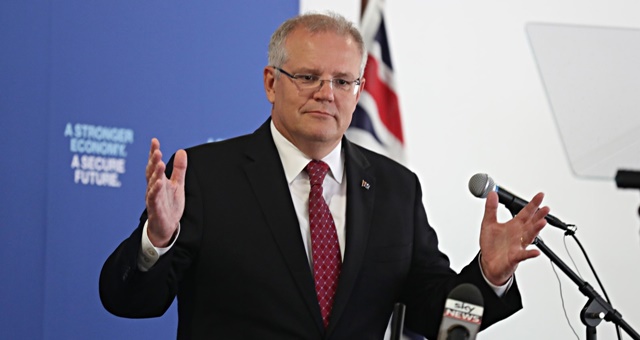Tourism advocacy bodies have collectively given the tick of approval to the Federal Government’s $17.6 billion stimulus package – part of which will go to prop up tourism businesses struggling to stay afloat amidst the Coronavirus crisis.
The stimulus package is aimed at businesses to help ward off redundancies and to keep apprentice and casual workers employed in the wake of the downturn, as well as provide sickness payments to casuals forced to miss shifts if asked to isolate due to the virus.
Tourism will share in at least $1 billion from the fund, which is supported by the waiver of national park and marine park fees, promotion of domestic travel and efforts to identify and support alternative export markets.
“This plan is about keeping Australians in jobs,” said Prime Minister, Scott Morrison.

Tourism Accommodation Australia National CEO, Michael Johnson, has commended the government, saying employers will hopefully feel supported by the news.
“Small and medium-sized accommodation providers will also benefit from immediate cash flow support payments of up to $25,000 – which is vitally important to many businesses impacted by both COVID-19 and the summer bushfires.
“The $1.3 billion being made available to provide wage subsidies to businesses employing apprentices and trainees is particularly welcomed by the accommodation sector, which invests heavily in recruiting and training the workforce of tomorrow.”
Accommodation Association CEO, Dean Long, labelled the government package as “an important first step”.
“We particularly welcome the $6.7 billion to provide immediate cash flow support payments of up to $25,000 for small and medium-sized accommodation providers. These payments are tax-free and will provide short term relief from the stress our accommodation businesses are feeling.
“However more will need to be done as the situation escalates. We will be seeking further fiscal measures that support continued employment where feasible, in particular wage support for impact employees and payroll tax relief at a state level.”

Australian Tourism Export Council CEO, Peter Shelley, said learning, training and support programs were ready to go for tourism businesses, many of which are available online. These included virtual trade show systems to maintain relationships and re-engage once the situation had passed, as well as training to help domestic specialists prepare their product for international export once channels were reopened.
“Despite the bushfires and subsequent COVID-19 crisis, the industry has been doing what it can to keep the doors open – this is a dire time and the industry needs every bit of support it can get,” Shelley added.

